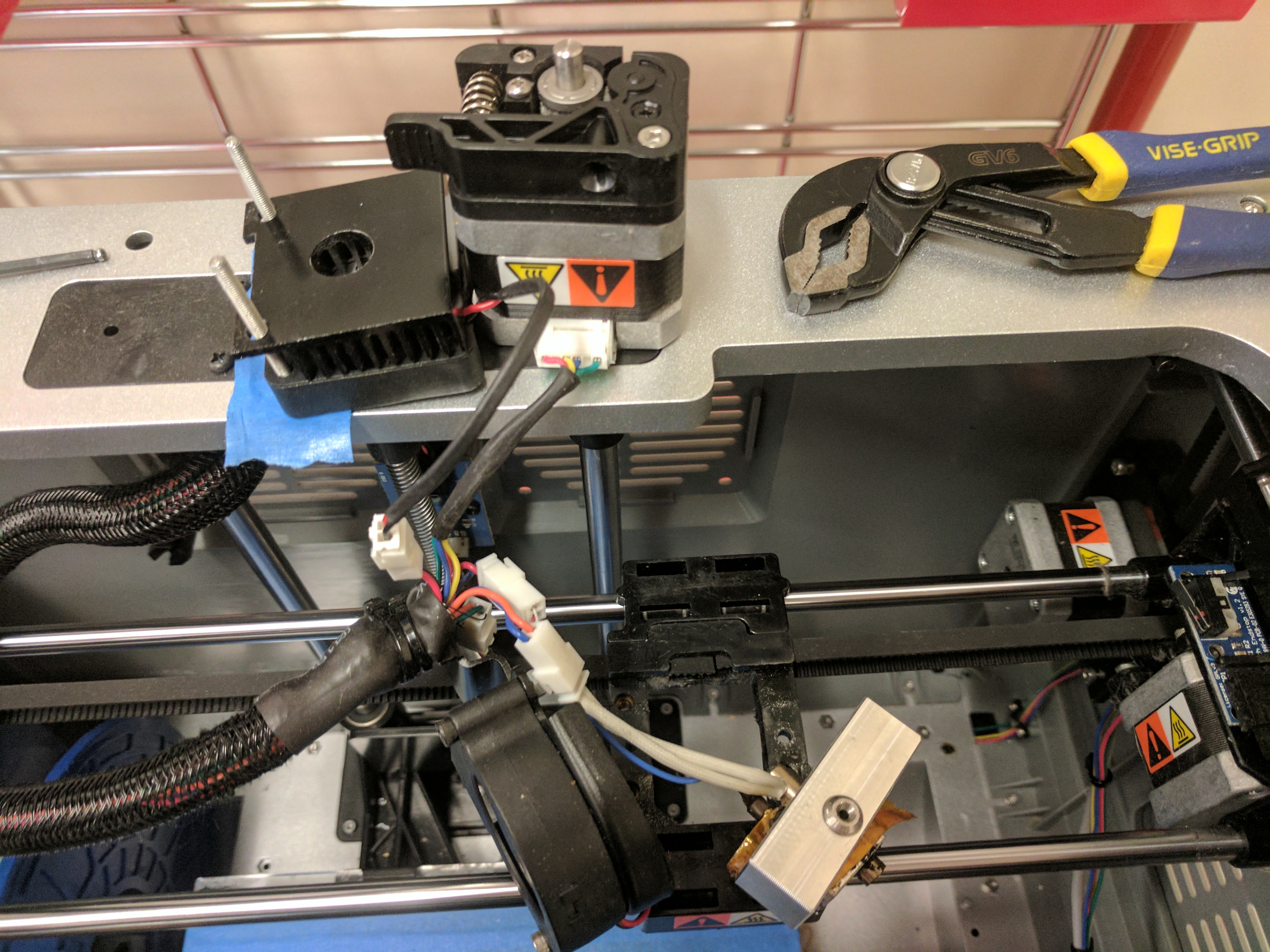
One of the many questions I continue to struggle with when trying to figure out where to navigate the ThinkLab is what kinds of things should we support and at what level should we support those things? There are already some things that the ThinkLab is known for, 3D design and printing, that we’ll continue to do but many things are undecided at this point. In looking at other makerspaces I realized there is so much variety. Being housed in the library this thought keeps running through my head — we wouldn’t fill our stacks with the same books as Virginia Tech so why would our makerspace have the same tools and technology as theirs? How does a makerspace meet the curricular needs of a public liberal arts institution? How does a makerspace reach out to disciplines that don’t typically associate themselves with spaces that are like makerspaces? I find myself worrying about becoming pigeon-holed as a space. I worry that as the ThinkLab’s exposure increases we’ll fall in to a cycle of supporting a very narrow area to the expense of exploring possibilities. I don’t want to hear, “Only [fill in the blank] majors use the ThinkLab”. Much like our library supports a wide variety of disciplines I want the ThinkLab to support a varied student population. And just as the library makes strategic investments about what curricular needs it can support (no, we can’t buy that niche $1000 encyclopedia set, sorry) I want to make sure I don’t over commit to some disciplines. Sure we’ll show you some basic 3D modelling software, but you’ll have to figure out that advanced 3D modelling software for yourself. But am I placing limits in ways that are thoughtful of what is sustainable or am I placing limits because I fear what I do not know? (And I certainly don’t know a whole lot). I’m constantly thinking about what we currently have to offer and what I think we should offer and and the balance between what I know at the moment and what I think would be possible. I worry about offering to support something only to later realize that it is going to be beyond what we could sustainably support.
Luckily in the fall every single faculty member I worked with was willing to take risks with me to see what the limits of space may be and the semester went off fairly well. I am very lucky to have hired student aides that brought in their own background knowledge in areas that I don’t know a whole lot about who were able to pull off projects I wouldn’t have been able to do myself. There were times though that I asked my student aides to stretch in ways that may have been taking advantage of their general excitement to be working in the space. Over the course of the semester it became quite clear I needed to establish some solid structure about what we could definitely support and what would be experimental. I have spent a bit of the winter break working on actual tutorials that I can expect my student aides to take students through as well as rolling out an online scheduling tool. This has alleviated some of my worry about providing sustainable support, but I know there is more work to be done.
In writing this post I realize I don’t hate all these tensions, but they make me uncomfortable (uncomfortable, but not paralyzed). There is no one right way to have a makerspace (despite the commodification of the maker movement). This is both liberating and terrifying. At times I wish I could stick my head in the sand and copy what so many other spaces do, but that wouldn’t make the space meaningful and useful to anyone in the long run. I want the ThinkLab to evolve with the needs of the school, but also be a source of inspiration that points in a direction. It is in this tension where people are working together and even disagreeing that some of the best stuff appears. I have a vision for the ThinkLab (maybe I should blog that one day?), but I know that some faculty member is going to show up one day and go, “I have an idea for a class” or a student is going to come in and say, “There is no place on campus that supports this, do you think the ThinkLab could?” and I’m going to be blown away and do everything I can to try and support that despite all my thinking about sustainable practices. I’ve already seen it start to happen.
How does one support wildly brilliant ideas?

As I read your post and before you mentioned it, I found myself asking “What is the purpose of the MakerSpace? What is your vision? If you could articulate that, I think we could give you better responses.
Yes, that is something I need to address. I’ve started and stopped that post several times. Maybe it is time to just put something out. Even if it is a rough draft.